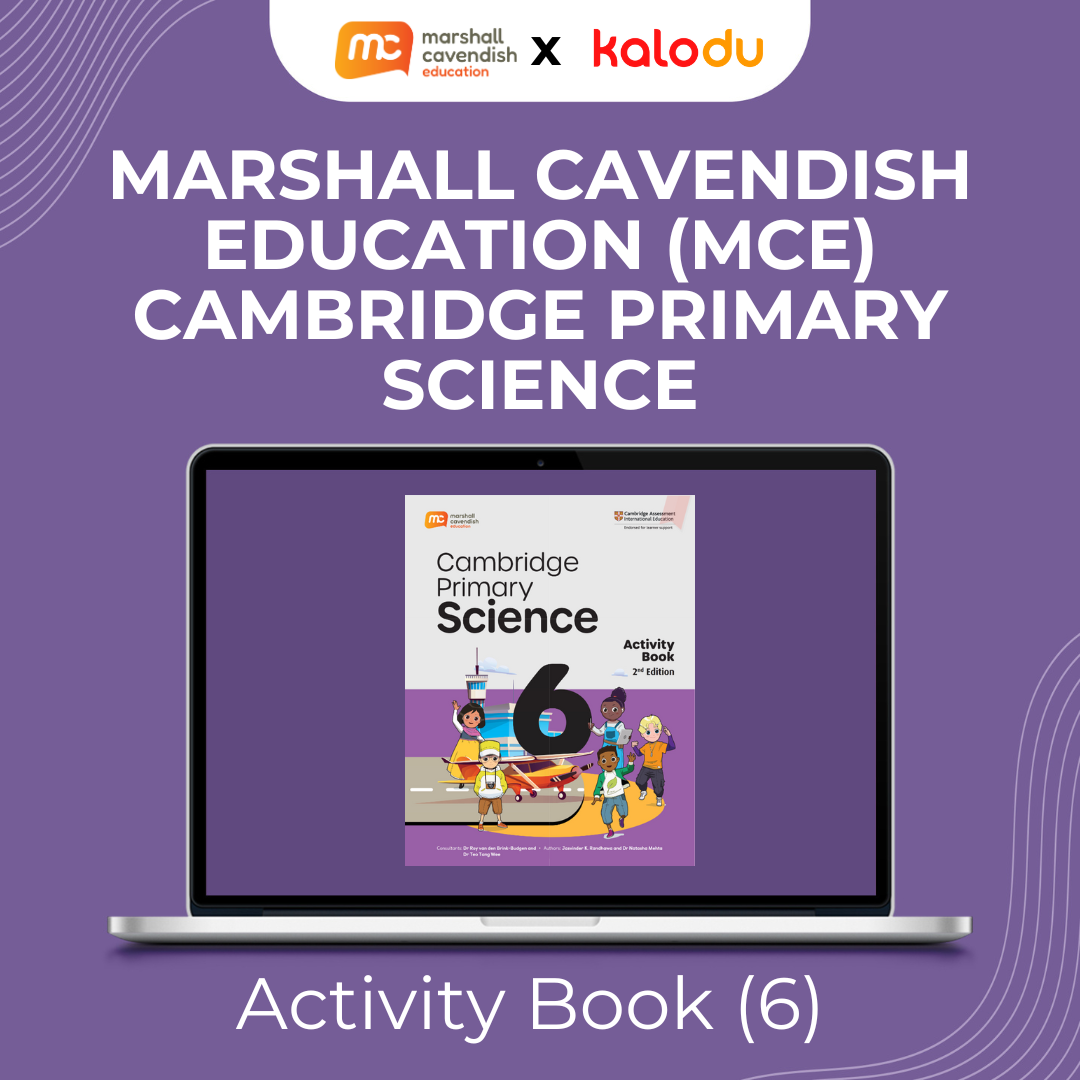MCE Cambridge Primary Science (2nd Edition)
MCE Cambridge Primary Science (2nd Edition)
Couldn't load pickup availability
PRODUCT DETAILS
Usage Duration: 12 months subscription upon activation
Usage Platform: MCEduHub
Curriculum: Cambridge Primary Science Curriculum Framework (0097)
Type:
- Student Book: Enhanced eBook (THIS IS NOT A PHYSCIAL BOOK)
- Activity Book: eBook (THIS IS NOT A PHYSCIAL BOOK)
Edition: 2nd Edition
Recommendations
- Student using Cambridge Primary Science Curriculum Framework (0097)
PRODUCT INFORMATION
Marshall Cavendish Education (MCE) Cambridge Primary Science (2nd Edition) series fulfils the new Cambridge Primary Science curriculum framework (0097). The series is designed to help young learners build a sound understanding of scientific concepts and to become young scientists who make a difference to the world with their knowledge and skills.
The 2nd Edition has retained the active learning approach, easy-to-understand language, and rich visuals. It builds on the previous edition by incorporating the new Thinking and Working Scientifically strand which aims to nurture students into active learners who understand the role science plays in the world around them.
Offers the Best of Both Worlds to Equip Students for Successful and Meaningful Living in the 21st Century.
This series combines Cambridge International’s global standard with Singapore’s tried-and-tested methodologies. It has retained the active learning approach and incorporated the new Thinking and Working Scientifically strand. This will help to develop learners’ scientific skills, allowing them to master 21st century skills such as critical and creative thinking skills.
Chapter OpenerInquiry questions, which require direct answers, opinions, or explanations, are used to trigger discussions pertaining to the topic and encourage deeper thinking related to the concepts. |

|
Thinking CapQuestion prompts encourage learners to reflect and think about what they already know, allowing educators to evaluate their prior knowledge. Learners can exercise higher-order thinking and model reflective behaviour, like a Cambridge learner |
 |
Let's ExploreHands-on activities, which can include group or peer discussion, are easily conducted in class, allowing learners to explore concepts before learning the facts and build 21st century skills, such as communication and collaboration. |
 |
Let's LearnApart from explanation of the key points, inquiry questions are embedded within the main text to promote thinking and discussion. |
 |
Problem-based LearningThese activities will encourage learners to think critically and creatively for possible solutions to real-life problems that affect them, their community, or society. |
 |
Science at WorkProvides information to relate the topic to science careers or everyday life. Research questions are included for further exploration to extend learning. |
 |
Tech Talk!Features modern technology that can be used to solve issues related to the topic and includes a critical thinking question for learners to ponder and conduct research. |
 |
Practice WorksheetEnd-of-chapter questions that are available in various formats, such as fill-in-the-blanks and tick the right answer(s), can help consolidate learning and assess learners’ overall understanding of concepts. |
 |
Share

The Best Way to Learn is with Marshall Cavendish Education
Your child learns best with Marshall Cavendish Education full suite of Digital Platforms.


























